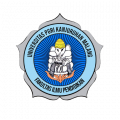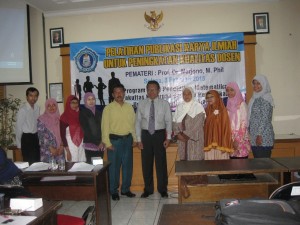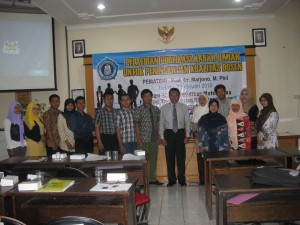The Dissemination of research findings basically cannot be separated from the overall research activities. Publication of scientific papers which are accredited nationally or internationally is one of the forms of dissemination of research results that can be used as an indicator of research excellence and researcher quality. However, scientific publications are in fact still low. The limited number of scientific publication made by university lecturers is considered to be the results of their limited writing competencies and lack of encouragement to write their research finding in nationally accredited journals or journals with international reputation. Besides, competitive research scheme requires research output in the form of scientific publication in an nationally accredited journal or an internationally accredited journal.
One of the activities to improve the quality and quantity of scientific paper publication is a training of nationally accredited journal article writing for lecturers. For that purpose, Mathematics Education Department conducted a training of scientific article publication with the theme “Scientific Publications to improve the Quality of Lecturers”. This training was held on Tuesday, February 3rd, 2015 starting at 08.00 to 10:30 in room A1 University of Kanjuruhan Malang.
The key note speakers in this training was Prof. Dr. Marjono, M.Phil., the Dean of Mathematics and Natural Sciences Faculty , University of Brawijaya Malang. He has written many articles in various journals, either through grants DGHE / DIKTI, EU-Project, or university funding. In the event, he delivered a paper with the title “Theory and Applied Mathematics: Research and Knowledge Management”.
The essence of the presented material by the speaker is that the idea of writing an article can be found in a variety of everyday phenomena. The idea is then poured in the form of research. To write an article on the results of these studies, there are several key stages to be done, such as understanding and meeting the sponsor’s request, support from the institution, etc. (ula & fandi)



